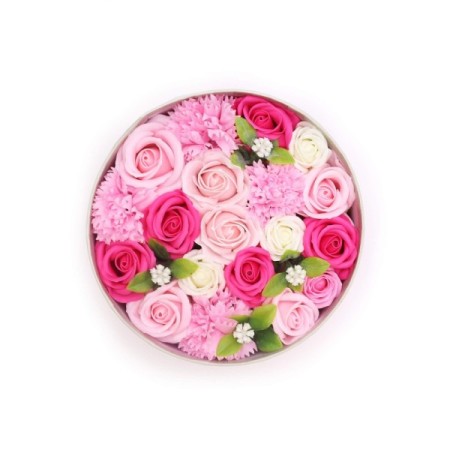Our Beginnings
Why do what we do
Our Supply Chain
We carefully select our suppliers to ensure the quality of the products we sell, as well as them being ethical and environmentally aware in the current world.
Our main supplier operates the AW Freedom Foundation. The idea is to give a small portion of each item sold, directly back to the workers who make that same product. For example 10p of the sale of a package of incense in the UK can go directly to the packager of this incense in Bangalore (India). You can see how only 10p can do incredible things for workers with such humble salaries, and an authentic hope of freedom, that's why it was called the Freedom Foundation. Thank you for supporting this initiative by buying products from us.
Ethics
Ethics are a very subjective and personal view on life but we can't ignore how the world has changed over the past few decades both for the environment and for people. World trade provides many advantages, but also many disadvantages.
Many don’t believe that ethics and business mix, but we like to think more and more people, and our customers would oppose this idea and we try hard to ensure our suppliers are of a similar mindset.
With regards to the porducts we sell, we often get asked about:
- Testing on animals.
- Child labour in developing nations.
- Fair Trade.
- Ecological, recyclable and sustainable products.
1. Testing on animals
We condemn any act of cruelty towards animals.
No products we stock are known to have been tested on animals. It's practicably impossible for us to claim that all the basic ingredients that go into a product we sell have never been tested on animals. What we can say, is that as far as possible, our products use natural, pure ingredients, and we use only reputable suppliers who share similar principles to ourselves, and who endeavour to produce entirely cruelty free products.
It is probably accurate to say that no basic ingredient has been tested on animals since 1967.
2. Child labour in developing nations
We do our best to check whether a company is likely to be using child labour as cheap or slave labour. No company is likely to admit it, so a degree of common sense and trust in our suppliers is important.
Exported goods tend to command a higher price than a local market so there really is no pressure on manufacturers to reduce costs to such a degree at the risk of losing large export orders.
Systematic use of child labour is unnecessary and an act of pure greed however, the reality is that culturally in small family businesses children are a part of the business.
In India, for example, a lot of components of craft work are produced by out-workers in the villages. There are over a million villages in India relying on farming and craft work as a means of income. A village will hand down particular craft skills from generation to generation and rely on this for extra income. Most villages still don’t have electricity or running water, but most children will attend a morning school. In the afternoons children will help in what is essentially the family business.
The reality is that the villages of India are a massive collective cottage industry. It is superbly organised with agents representing villages or groups and ferrying materials in and finished goods back. Each area of the country has its own special skills handed down the generations. What do they make? That ethnic skirt you are wearing, the shirt, the jute bag, those wooden toys, and the beads in your fashion jewellery - all made in the villages of India. Factories exist of course, but often the overspill work finds its way to the villages.
Our suppliers take great care to ensure children are not misused in the making of their products.
3. Fair Trade
Our supplier spends up to six months a year travelling in India, Indonesia, Nepal and China seeking out new product lines and trying to fulfil our customer's wish lists.
They visit local suppliers not only to do deals but also to see how well staff and subcontractors are treated, and will cancel orders if its deemed staff are being exploited.
As export goods from India are priced higher than goods for domestic sale (in India), this means that exporting companies should be able to provide better conditions and pay for their staff (and a better quality products). We are happy to work within this system provided that we can see the benefits for the craft workers. This is our suppliers version of Fair Trade.
4. Ecological, Recyclable and sustainable products
We sell a wide range of products, and it would be very difficult to have only organic and recycled products, but we always give more value to these when it comes to introducing new products. We always ensure, as a minimum, that raw materials are sustainable.

